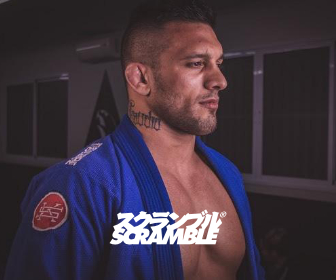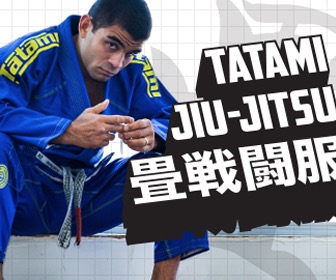The tale of AJP Grand Slam champion, Roosevelt Sousa (16-2-0), is one seen too often in our sport. That of a high-level athlete who is unable to compete in the two most important tournaments on the international jiu-jitsu circuit for being denied entrance in the United States. Many of these athletes’ ordeals – Roosevelt’s included – are happening due to the incompetence of their attorneys.
The inability to enter the country where the majority of high-value international events take place will severely diminish an athlete’s stock value, which leads to diminished earnings in sponsorships and his/her chances of being called to compete in professional/paid events among other, more long-term effects such as failing to compile a strong curriculum to open a school of their own in the future.
Although the US visa is of outstanding value to an international jiu-jitsu player, many Brazilian grapplers are blocked every year from entering the country. Considering Brazil makes for the vast majority of jiu-jitsu World and Pan American Champions, this is a big deal for our sport.
Among the many who have been denied a US visa at one point in time are athletes such as Jackson Sousa, Luan Carvalho, Gabriel “Maranhão” Costa, Marcos “Petcho” Martins, to mention a few. The latest victim of this lottery was the aforementioned Roosevelt Sousa, a fresh new black belt who already has a few important wins on his record over big names such as Anderson Munis, Rodrigo Ribeiro, and Max Mendes while amassing an impressive 75% submission rate in 16 wins.
In Sousa’s case, the problems started in 2019. At the time Roosevelt was allowed to enter North America on a tourist visa, which he used to compete in the IBJJF amateur circuit, achieving #1 ranking status as a brown belt in both the Gi and No-Gi divisions that year. While training at Fight Sports (FS) in Miami, Sousa was approached by a lawyer who proposed an application for an athlete visa, known as a P1. The services being paid by his sponsoring team, FS.
“After hearing the attorney out I immediately prepared the documentation and handed it over” Roosevelt explained. He was already 5 months into his US tourist, with less than 1 month left to leave the country legally at the start of this process. Although pressing daily for updates, as the time passed and the clock ticked towards the end of his stay, Sousa had not heard from his lawyer. With one final push, the documents were finally sent with one week left on the Brazilian super-heavyweight’s visa.
Nervous about the process, Roosevelt had many talks with the attorney regarding his status in the country as his tourist visa was about to expire. He was told not to worry: “he informed me that while I was in the process of applying for an athlete visa, I would be Legal.” sadly, that was not the case. “The truth is that he would have had to apply for an extension of my tourist visa while waiting for the athlete visa decision” as he would later find out, that process was never initiated.
You can guess where this story is going. Roosevelt ended up overstaying his allowance in the country and for that, he received a ban from re-entering the USA. A heavy sentence for a jiu-jitsu athlete whose biggest fault appears to have been trusting his lawyer.
During his closing remarks regarding this issue, Roosevelt Sousa left his heartfelt advice to other grapplers from South America: “It doesn’t matter if you are a super accomplished athlete, always look for an attorney with a proven track record, with recommendations from someone you know. Look for people who have worked with athletes you know.”
Over the many years of reporting on jiu-jitsu, we have seen these tragic circumstances roll out too many times. We hope Roosevelt sharing his ordeal may shine some light on this issue and prevent other athletes from falling prey to the same set of circumstances.















